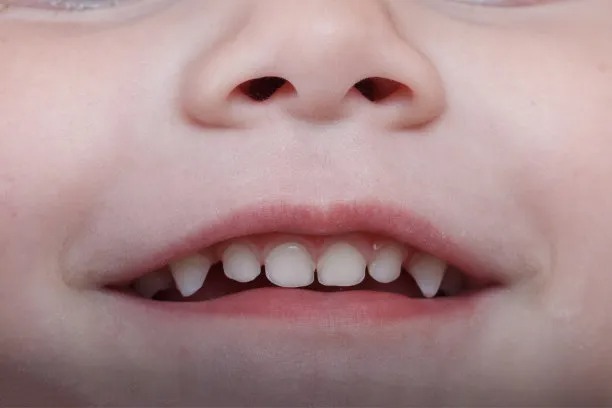Summary: Periodontal disease is not just a localized oral health issue; it significantly impacts overall health and has connections to various systemic conditions. This article explores the multifaceted relationship between periodontal disease and overall health in adults. We delve into how this condition can influence cardiovascular health, diabetes management, respiratory health, and the effectiveness of pregnancy outcomes. Each section highlights the biological mechanisms at play and underscores the importance of maintaining periodontal health for preventing systemic diseases. By understanding these connections, adults can better appreciate the critical role oral health plays in overall wellness.
1. Connection Between Periodontal Disease and Cardiovascular Health

Research has shown a compelling link between periodontal disease and cardiovascular diseases. Bacterial infections and inflammation associated with periodontal disease can lead to a cascade of reactions affecting heart health. Inflammation markers, such as C-reactive protein, are often elevated in those with periodontal conditions, indicating an inflammatory state that may affect cardiovascular systems.
Moreover, the bacteria from periodontal infections can enter the bloodstream, potentially leading to atherosclerosis – a condition characterized by plaque buildup in the arteries. This can contribute to heart attacks and strokes, making dental hygiene a crucial factor in maintaining cardiovascular health.
Preventive dental care and effective treatment of periodontal disease not only improve gum health but can also support heart health. Regular dental check-ups and cleanings can reduce the onset of these systemic cardiovascular issues, underlining the integrated nature of oral and overall health.
2. Periodontal Disease and Diabetes Management
The relationship between periodontal disease and diabetes is bidirectional. On one hand, diabetes can increase the risk of developing periodontal disease, and on the other, periodontal disease can complicate diabetes management. Poorly controlled blood sugar levels can exacerbate gum inflammation, while chronic periodontal infections can impair glucose metabolism.
Studies indicate that individuals with diabetes are more susceptible to periodontal disease, primarily due to their bodys reduced ability to fight infections. Effective management of periodontal disease has been shown to result in better glycemic control, highlighting the importance of integrated care for those with diabetes.
Maintaining optimal oral health is critical for diabetic patients. Regular dental visits for cleaning and assessment can help mitigate the risk of severe periodontal disease, ultimately leading to healthier blood sugar levels and a reduced risk of diabetic complications.
3. Impact on Respiratory Health
Emerging evidence suggests that periodontal disease may adversely affect respiratory health, particularly in vulnerable populations such as the elderly or those with existing respiratory diseases. The inhalation of bacteria from infected gums can lead to respiratory infections, including pneumonia and chronic obstructive pulmonary disease (COPD).
Furthermore, the inflammation associated with periodontal disease can impact lung function. Studies indicate that individuals with severe periodontal conditions may have an increased risk of respiratory issues due to the systemic inflammatory response influenced by oral bacteria.
Maintaining good oral hygiene can mitigate these risks. By reducing oral bacteria through effective dental practices, individuals can potentially improve their respiratory health and decrease the incidence of respiratory infections, contributing to overall well-being.
4. Effects on Pregnancy Outcomes
Periodontal health plays a significant role in pregnancy outcomes, as pregnant women with periodontal disease face increased risks of complications such as preterm birth and low birth weight. The inflammation and bacterial load associated with periodontal conditions can adversely affect pregnancy, potentially leading to unfavorable outcomes for both mother and child.
Pregnant women are encouraged to prioritize oral health to reduce the risk of periodontal disease. Regular dental check-ups can help identify any issues early on, allowing for timely intervention and treatment during pregnancy.
The importance of dental care during pregnancy cannot be overstated. By maintaining good oral hygiene and addressing any periodontal issues, expectant mothers can promote better health outcomes for themselves and their babies.
Summary:
In conclusion, the impact of periodontal disease on overall health is profound. It is intricately linked to various systemic conditions, including cardiovascular health, diabetes management, respiratory health, and pregnancy outcomes. Recognizing and addressing the interconnections between oral health and systemic diseases can significantly improve overall wellness and quality of life.
By prioritizing dental hygiene and seeking regular dental care, individuals can not only protect their teeth and gums but also safeguard their overall health. This article is compiled by Vickong Dental and the content is for reference only.
Vickong Dental
Vickong Dental is a large medical group established in Hong Kong in 2008 by professors from well-known medical universities in Guangdong and Hong Kong, as well as medical doctors from key national '985' universities (including Master's supervisors and senior professors). The chain of branches brings together expert dentists with PhDs and Master's degrees from Hong Kong and Mainland China, committed to providing high-quality dental treatment.
"Vickong Dental Practices the University Motto of 'Healing and Serving Society,' with a Stable Operation for Sixteen Years. It Has Been honored with Hong Kong Enterprise Leaders's Choice,' and is a Global Trusted Implant Center for the Nobel Implant System. Recommended by Hong Kong Metro Broadcast and Guangdong Television, it Serves Customers from Over Thirty Countries and Regions, Gaining the Trust and Favor of Citizens from the Guangdong-Hong Kong-Macau Greater Bay Area and Surrounding Cities.

Thousands of customers' unanimous praise
The most recognized and highly recommended dental service by customers in the Guangdong-Hong Kong-Macau Greater Bay Area
We Ensure You Receive Detailed Care and Attention Here
Hong Kong standards, Shenzhen prices, Your Trusted English-speaking dentists

Vickong Dental Medical-Grade Instrument Disinfection Process
Vickong Dental Medical-Grade Instrument Disinfection Process

Vickong Dental Chain: A Warm and Comfortable Environment for Treatment






Appointment Hours

Q&A
Why choose Vickong Dental?
Vickong Dental practices the university motto 「Medicine to Benefit Society」, with each branch bringing together highly qualified dentists with doctoral and master’s degrees from Hong Kong and the Mainland, and has maintained seventeen years of steady operation。Recipient of 「2024 Hong Kong Enterprise Leaders Brand」, 「2025 Hong Kong Enterprise Leaders Brand」, a Nobel Biocare Global Trusted Implant Center, and a brand recommended by Metro Radio Hong Kong and Guangdong TV。
To date, we have served customers from more than thirty countries and regions,earning exceptionally high word-of-mouth recognition and trusted recommendations from residents across the Guangdong-Hong Kong-Macao Greater Bay Area and surrounding cities
We have eight major branches in Zhuhai、Shenzhen,and a consultation and service assurance center in Hong Kong,so you can book a free consultation at any time for any questions,which is very reassuring.
If I do not accept the quotation after the CT scan, will I be charged??
No! As long as the actual treatment has not started, you will not be charged any fees.
Will there be any additional charges during the treatment process?
No, there won’t be any additional charges. Before treatment begins, we will clearly explain the treatment plan and its corresponding fees. Only after the patient agrees and signs the consent form will we proceed with the dental service.
Can I pay in Hong Kong dollars?
Yes. Vickong Dental accepts payment in Hong Kong dollars. The amount will be converted based on the exchange rate of the day, and the applicable rate will be clearly communicated to you in advance.
Can I reschedule my appointment at any time?
Yes. Please contact us via **WeChat** or **WhatsApp** as early as possible, providing your original appointment time and details, along with your preferred new date and time slot for rescheduling.













